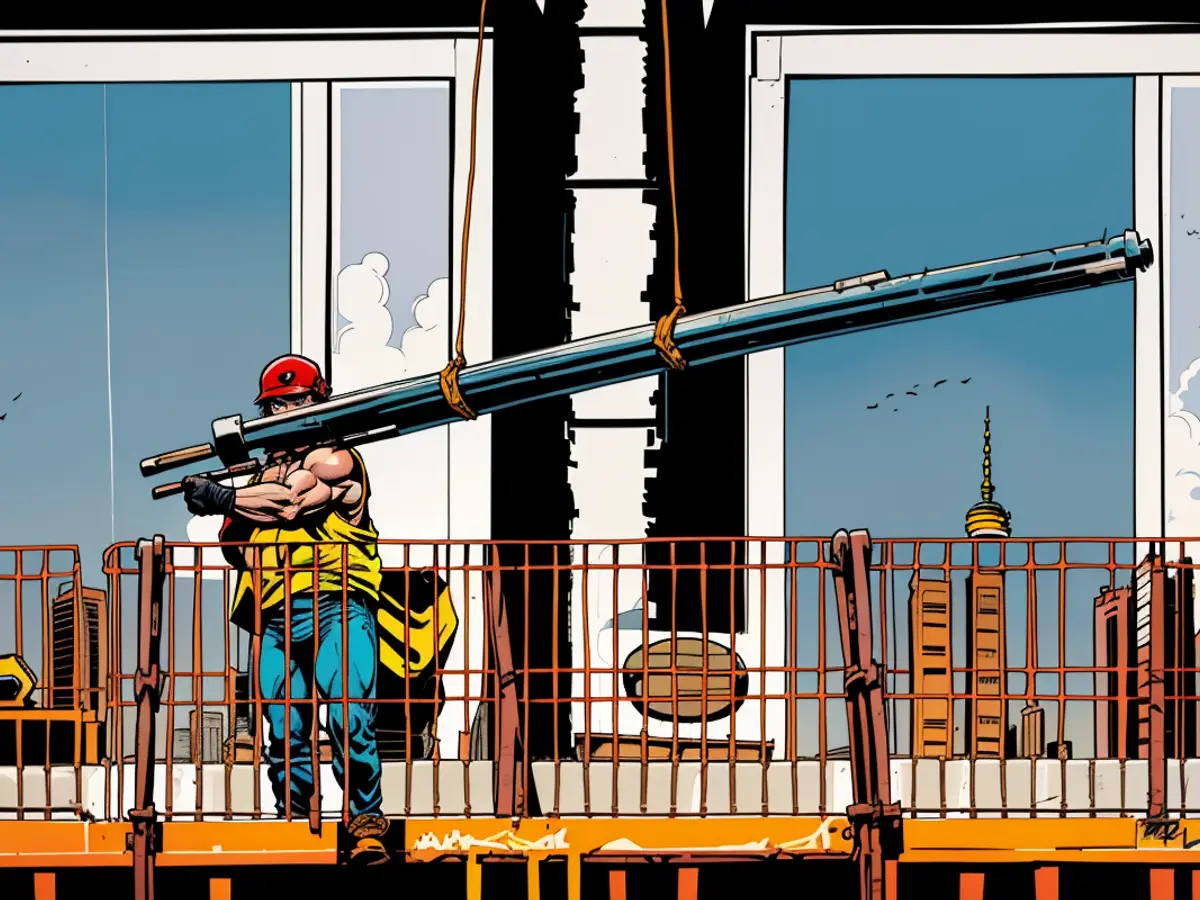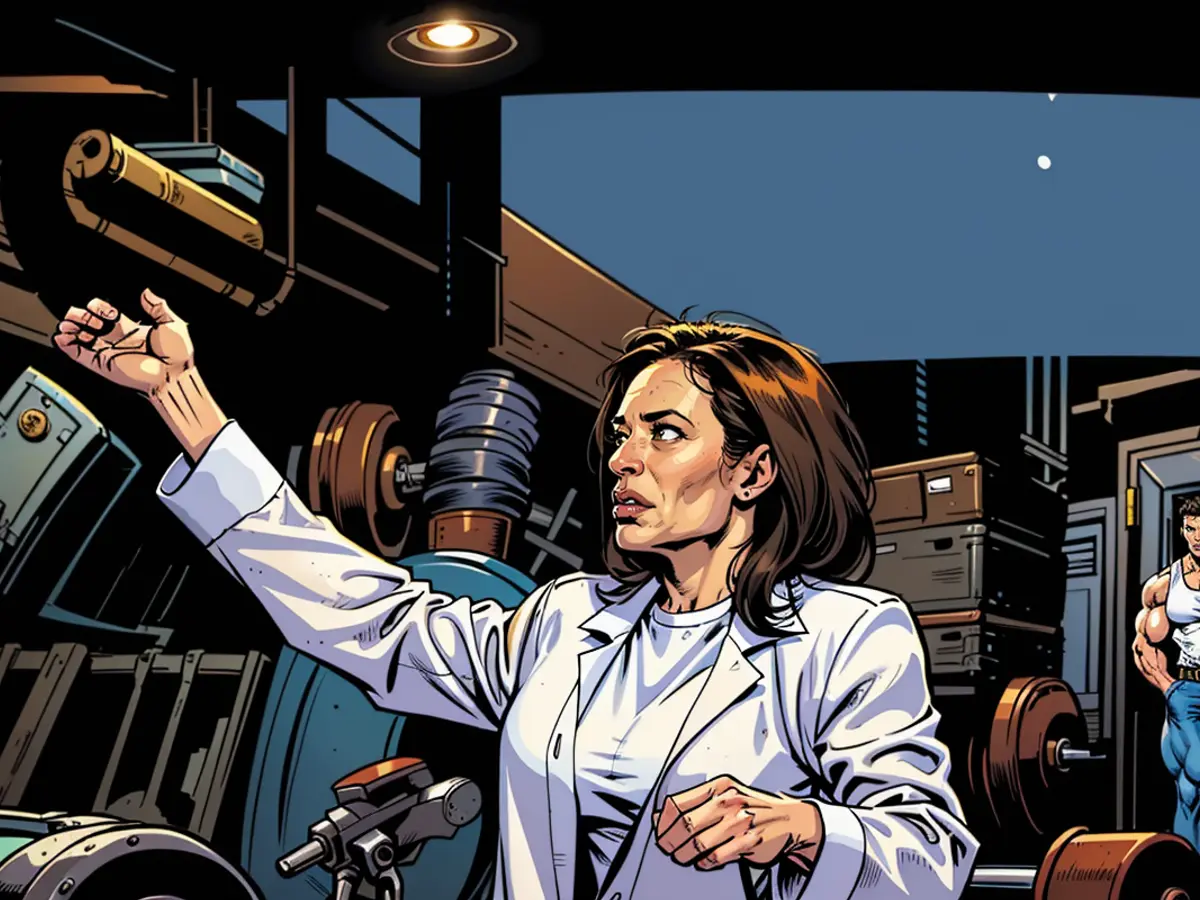Maue half-year balance sheet: just over 100,000 homes approved
In the first half of 2024, there was the largest decline in single-family houses: Here, 18,600 houses were approved, a decline of almost 31 percent compared to the previous year, as the statistics office further reported. For two-family houses, the decline was almost 15 percent, and for multi-family houses, it was around 21 percent.
"The current level of building permits corresponds to only slightly more than 200,000 newly built apartments per year," explained Sebastian Dullien, scientific director of the Institute for Macroeconomics and Business Cycle Research (IMK) at the Hans-Böckler Foundation. The original goal of the federal government, that every year 400,000 new apartments should be built in Germany, is "unattainable" for this legislative period.
The greatest burden is the historically strong interest rate increases by the European Central Bank (ECB) in the past two years. "The interest rates for ten-year mortgage loans had temporarily quadrupled from around one percent and are still more than three times as high as at the low point."
Dullien expects a turning point in the German housing market "at the earliest in the later course of 2025, when the ECB has significantly lowered interest rates and these interest rate cuts also have an impact on the demand for construction."
The ECB had raised the key interest rates ten times in a row since July 2022 due to soaring inflation and kept them at a high level from October to April 2024. Meanwhile, the inflation rate in the eurozone has declined significantly, and in June, the central bank lowered the interest rate by 0.25 percentage points to 4.25 percent. What will happen in September is "completely open," emphasized ECB President Christine Lagarde.
Industry associations called on politics to do more against the slump in housing construction. "The traffic light coalition emphasizes its will to create affordable housing. However, political will alone does not build a single apartment," explained Tim Oliver Müller, CEO of the main association of the German construction industry. New state requirements and regulations will not help. Müller praised the "streamlined" state building regulations in Lower Saxony - other federal states should "urgently" follow this example.
The Central Association of the German Construction Industry also urged that states and municipalities could boost housing construction - the state building regulations are "the sharpest sword" to simplify construction. Lower Saxony has set a "real blueprint" for other states, praised main CEO Felix Pakleppa.
He listed: Distance requirements have been reduced, allowing buildings to be built larger. The obligation to create parking spaces when building apartments also falls away. Moreover, the possibilities for attic conversions or extensions have become easier. "If we could build like this in all 16 federal states, more affordable apartments would also be created again."
However, the impulses of the federal government are "too weak" to get the housing construction going again, criticized Pakleppa. Due to high interest rates and stricter energy requirements, building has become unaffordable for many - "or it simply no longer makes sense."
The Federal Association of German Housing and Real Estate Companies (GdW) demanded an "absolute balancing priority for the construction of apartments," as it was introduced for the construction of renewable energy sources. The Building Code must be designed accordingly.
"Mantra-like", the GdW has been demanding a low-interest program for affordable housing for many months. "An interest rate of one percent could significantly boost construction activity and once again enable guaranteed, affordable rents of ten to twelve euros per square meter." The GdW calculates that a one-percent interest subsidy would be cost-neutral for the state due to increased tax revenues from a revitalized construction industry.
The Commission, in response to this housing market situation, has also adopted a communication on the implementation of housing programmes to address the challenges faced in the German housing market. The implementation of this communication could potentially provide financial support and incentives to encourage housing construction and make it more affordable.








